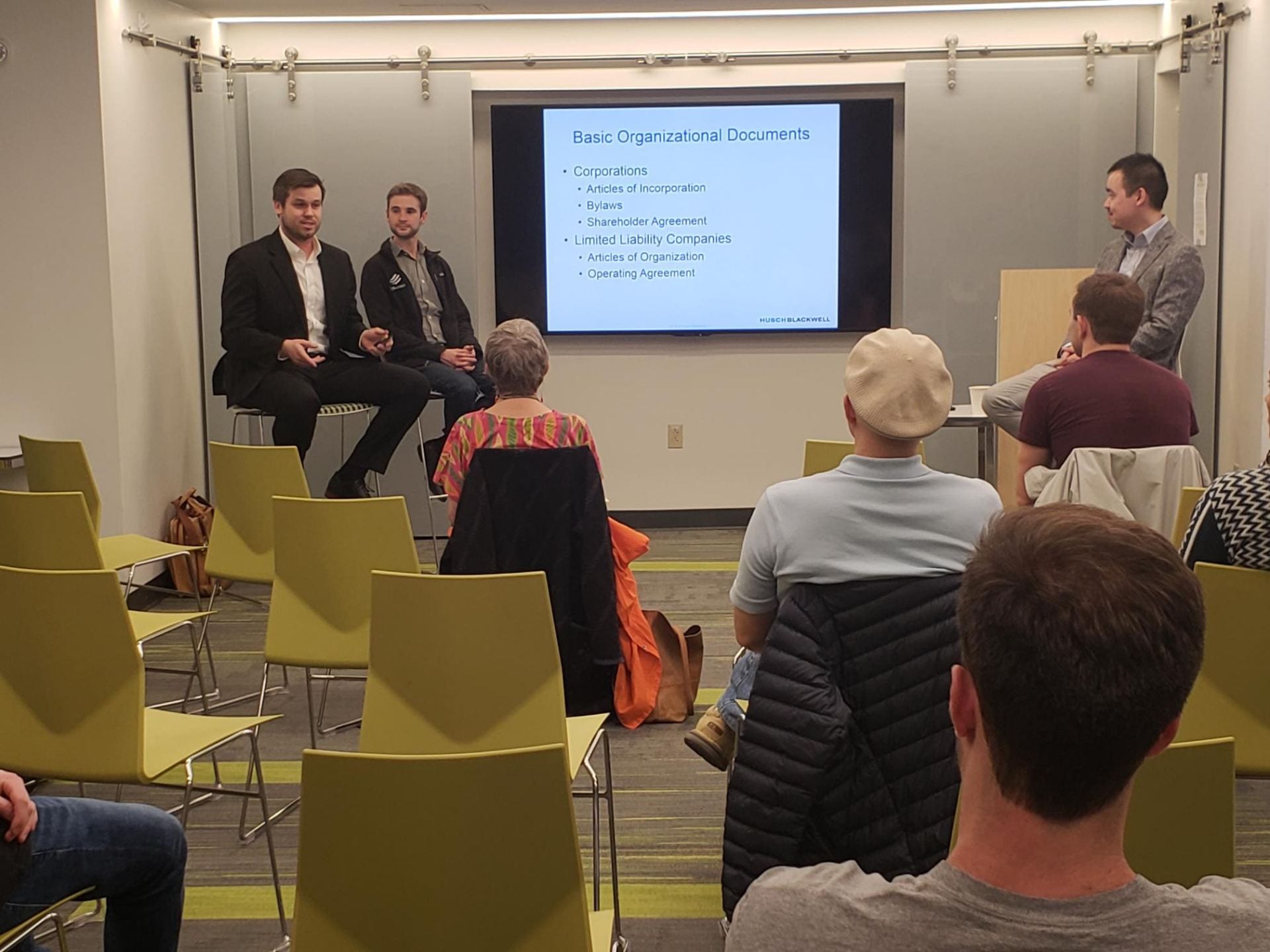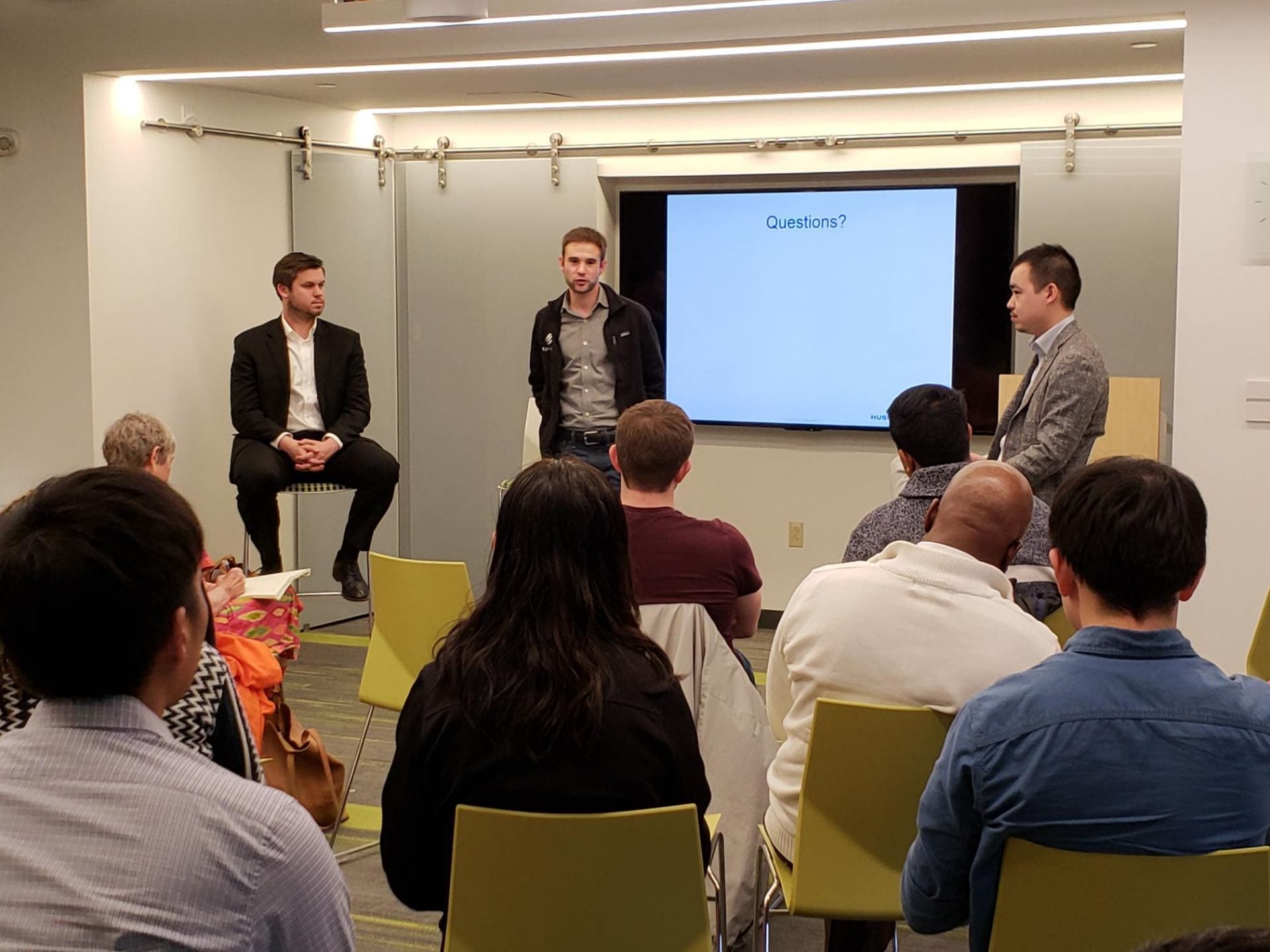Recently, Sling Health hosted an interactive presentation on common pitfalls and mistakes in startup incorporation and equity. They invited Jordan Elliott to speak on common legal issues and Blake Marggraff to share his journey of starting a successful company.
“Nothing is tricky when it’s only yourself” Jordan Elliott, Associate at Husch Blackwell LLP, on the challenges young companies face when they begin to expand. Elliott, who enjoys using his MBA and legal background to help clients navigate the increasingly complex and ever-shifting business landscape, went on to share that when companies are introduced to new people and ideas as they look for funding and collaboration, new issues will inevitably arise. Elliott’s advice: set up “rules of the game” through the shareholder agreement.
Blake Marggraff, CEO of Epharmix, a company that operates at the intersection of medicine and consumer technology to offer interventions that use automated means to help medical personnel manage patients’ conditions while collecting disease-specific data, gave his advice for finding the best partners for a new startup, “be aggressively non selfish”. He also stated that while not all endeavors will be successful financially, a best practice is to bring in the most qualified people early to increase the probability of success.
Marggraff shared his mental model for success operating a new company: be aggressively non selfish and don’t work with someone across the table you wouldn’t want on your own team. He stressed the value and importance of finding the right people to help you grow a new business.
While finding new team members as a young startup may be difficult, Marggraff gave three main ways to attract the right talent. First, ensure everyone is on the same page and set explicit goals and milestones. Second, allow people to leave the company if those goals aren’t met. Last, people have different needs and can afford to take on more or less risk based on their situations so set compensation accordingly; if that means taking a smaller slice of the pie yourself or giving a new team member more, that may be the best course of action. “Meet people where they are.”
When asked to describe his favorite part of the event, Raphael Chung, Engineering 19′, enjoyed “hearing direct stories from a founder and law firm attorney about the specific details that go into making an established startup and hearing their advice.”



